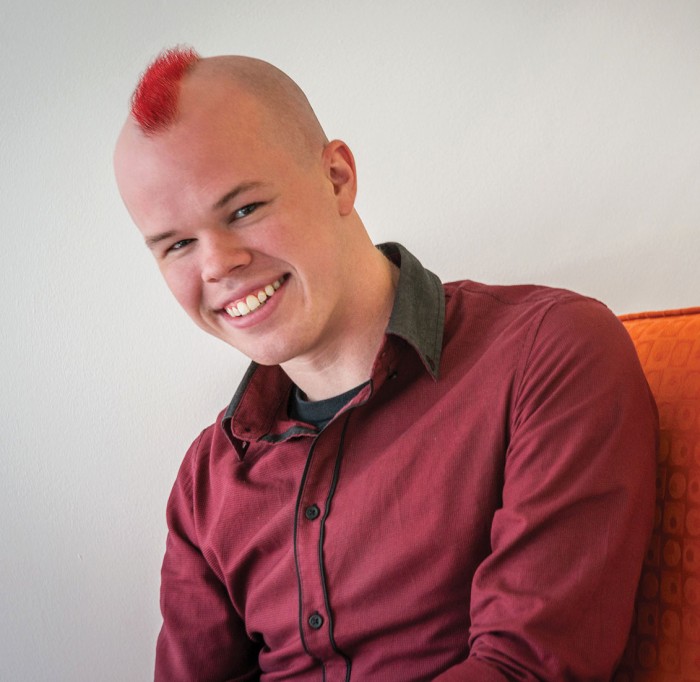Sam Brinton has had a lot of experience speaking up on controversial issues. He is a policy advisor at Third Way, a centrist think tank in Washington, D.C., and an expert in advanced nuclear reactors, including small reactors that shut themselves off in disasters. He’s also a survivor and a leading opponent of conversion therapy, a disputed treatment that aims to change sexual orientation from homosexual to heterosexual.
“I want to move the dial a little bit to leave the world in a better place by talking about a hard issue in a way that more people are able to access it,” he says. “The challenge of coming out as LGBT sure gives you a lot of practice for coming out for nuclear energy.”
Brinton earned bachelor’s degrees in mechanical and nuclear engineering and vocal music performance at Kansas State University, where he helped found the state’s first LGBT resource center. At MIT, he earned dual master’s degrees through the Technology and Policy Program—one in engineering systems and the other in nuclear science and engineering. He served as president of the MIT Science Policy Initiative and cofounded two student groups: Stand with Science, which supports more federal research funding, and the National Science Policy Group, a nationwide network focusing on science and policy issues.

Brinton was a graduate resident tutor at 5th East, where residents had a penchant for colored hair. On a dare, he shaved a mohawk and dyed it red—and he’s kept the style ever since. Members of Congress now quickly recognize “that nuclear engineer from MIT” in a sea of gray suits. “It’s the definition of good branding,” he says. Government officials also know his advocacy. As a clean-energy fellow at Third Way, he analyzes topics as diverse as freight efficiency and global energy consumption, and he recently coauthored a paper on how restricting nuclear power could undermine progress on clean energy.
In 2014, Brinton was the first person to testify before the U.N. Committee Against Torture as a survivor of conversion therapy. The testimony was part of a National Center for Lesbian Rights campaign called #BornPerfect, which he leads.
“President Obama has made an official announcement in support of ending conversion therapy. Four states and the District of Columbia have passed legislation to ban it,” Brinton says. This past summer, he was the grand marshal of the Boston Pride parade, where he called on Mayor Marty Walsh and Governor Charlie Baker to ban the practice in Massachusetts.
“This is what MIT teaches you—how to use your voice in all of your passions,” he says. “I have a chance to tell my story in a really good way to solve a big international challenge.” Or two.
Keep Reading
Most Popular
Large language models can do jaw-dropping things. But nobody knows exactly why.
And that's a problem. Figuring it out is one of the biggest scientific puzzles of our time and a crucial step towards controlling more powerful future models.
How scientists traced a mysterious covid case back to six toilets
When wastewater surveillance turns into a hunt for a single infected individual, the ethics get tricky.
The problem with plug-in hybrids? Their drivers.
Plug-in hybrids are often sold as a transition to EVs, but new data from Europe shows we’re still underestimating the emissions they produce.
Stay connected
Get the latest updates from
MIT Technology Review
Discover special offers, top stories, upcoming events, and more.